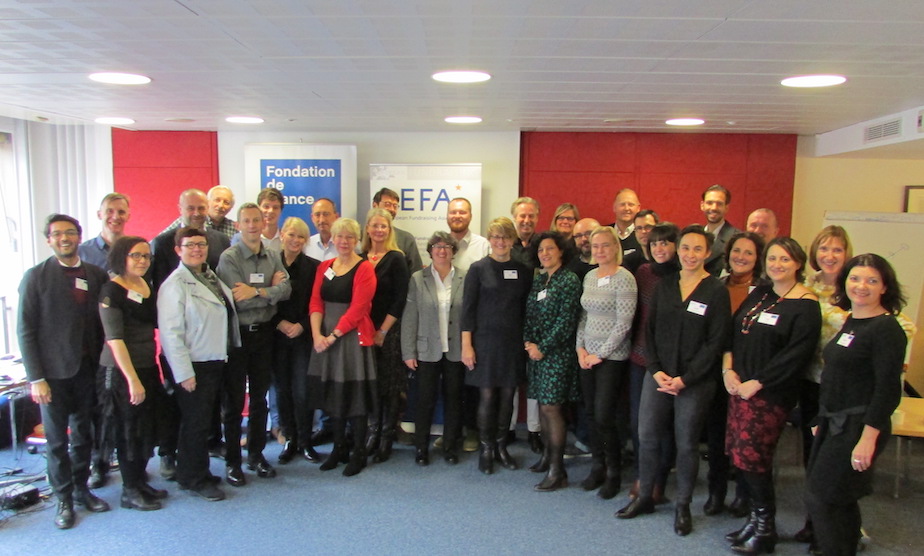
Highlights from EFA Skillshare 2018
December 5, 2018
Vast majority of Spaniards have supported good causes, study reveals
February 6, 2019The European Charities’ Committee on Value-Added Tax (ECCVAT) has published its recommendations for changes to the VAT rules proposed by the European Commission earlier this year, with ECCVAT Co-Chairs, Hanna Surmatz from the European Foundation Centre (EFC) and Max von Abendroth from DAFNE, saying:
“Irrecoverable VAT is a significant financial burden on public benefit organisations, which are often treated as the final consumer and we hope that the current VAT reform will be able to take the specific issues of charities into account.”
Backing ECCVAT’s proposal, which is designed to reduce the VAT burden for charities, EFA is encouraging its network of national fundraising associations to replicate or make similar recommendations to contacts and policy-makers in the European Council.
EFA president Gosse Bosma says:
“This is a great opportunity for the sector to come together across Europe and lobby for a clear set of recommendations and reduce the tax burden. ECCVAT has already done the hard work in establishing some realistic recommendations for change. Now it’s down to all of us to communicate our support and reach out to decision-makers that could make this proposal a reality.”
Current European Commission proposal
If the European Commission’s proposal comes into fruition, it will give Member States more flexibility about how they set VAT rules at a national level. In addition to keeping a standard VAT minimum rate of 15%, the European Commission has suggested that Member States be able to put in places two separate reduced VAT rates (between 5% and the standard rate), one exemption and one low level reduced rate (between 0% and the reduced rate).
ECCVAT recommendations
Given the problems that charities encounter with the VAT system, the Commission’s proposal is welcomed, however concerns remain over the large and costly amount of irrecoverable VAT that charities and foundations cannot recover on their purchases.
As a result, ECCVAT is recommending the adoption of the Commission’s proposal, but
Is calling for four further amendments to improve the VAT treatment of charities. This includes:
- Recognising the specific position of charities to ensure they receive the benefit of reduced rates and zero rates
- Allowing the deduction of input VAT of non-taxable services and deliveries provided by charities
- Protecting current derogations and reduced rates and making them available to charities and other public benefit organisations across Europe
- Introducing more regular reviews of the list of the excluded items
ECCVAT works to limit the impact of VAT and other taxes on the work of NGOs across Europe, by conducting research into the effects of VAT on NGOs, lobbying the EU on current VAT rules and monitoring developments in EU legislation.




